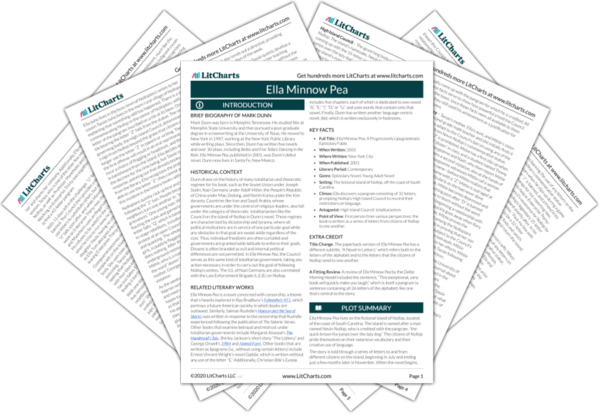AI ToolsNew
Tools to make learning and teaching easier
|
Previous
Chapter 1
|
Ella Minnow Pea: Chapter 2 Summary & Analysis |
Next
Chapter 3
|


Upgrade to unlock the analysis and theme tracking for all of Ella Minnow PeaElla Minnow Pea!
Get LitCharts A+